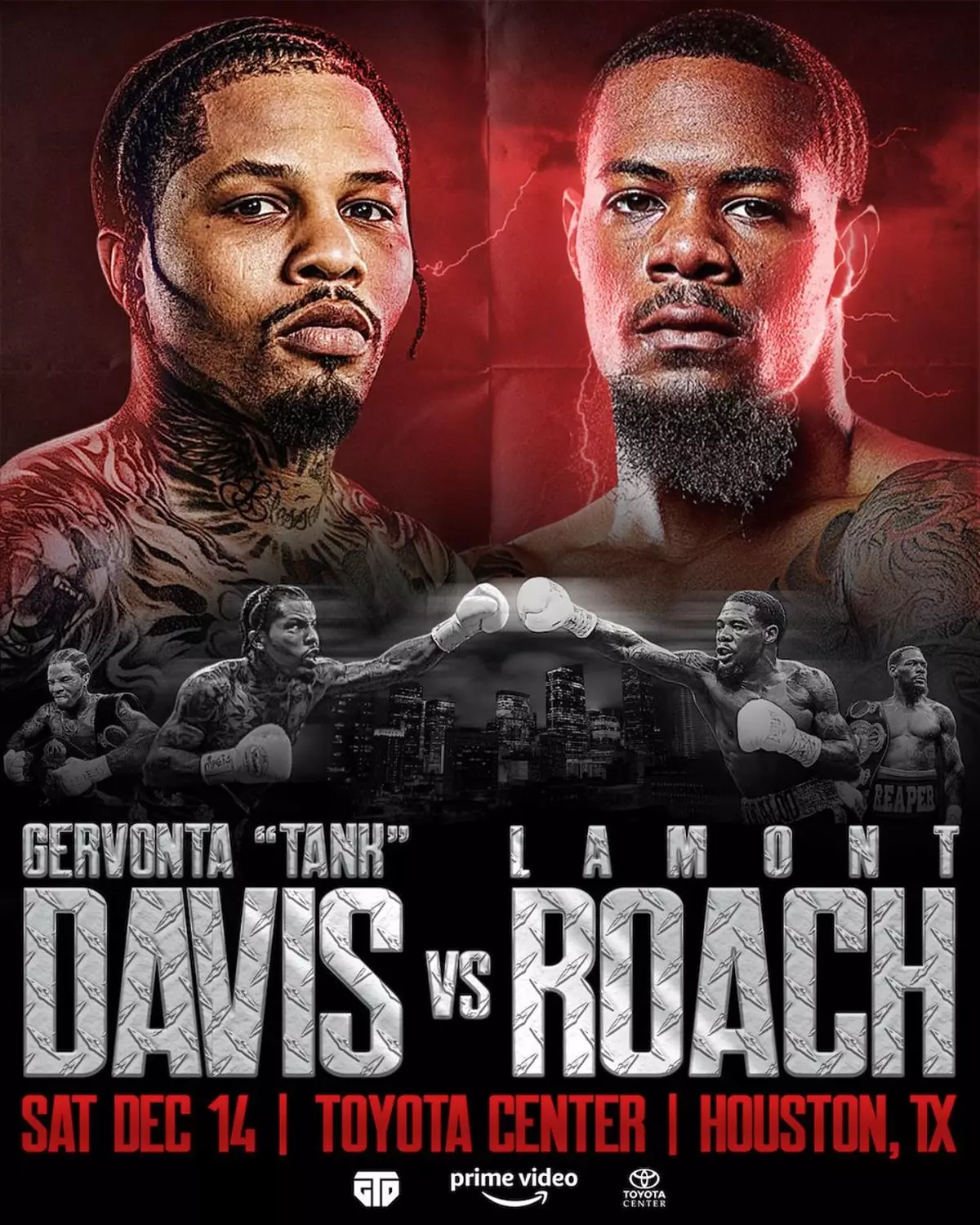In what is shaping up to be one of the most anticipated bouts in the lightweight division, Lamont Roach has been vocal about the rematch clause embedded within his contract for the upcoming fight against WBA champion Gervonta “Tank” Davis. Scheduled for March 1st, the fight’s venue remains undisclosed, but the buzz surrounding it is palpable. Roach, with a professional record of 25 wins, 1 loss, and 1 draw, is urging his followers to “get ready” for an upset, claiming his objective is not only to challenge Davis but to defeat him decisively.
However, Roach’s assertions have triggered widespread skepticism, particularly across social media platforms. Many fans mock the notion of Roach besting Davis, who boasts an impressive record of 30 wins, 0 losses, with a staggering 28 knockouts. The consensus among enthusiasts appears to be that Roach’s dreams of a rematch may very well dissolve after what they predict will be a swift knockout from Davis. The question lingers: Can Roach really deliver on his bold assertions, or is he setting himself up for disappointment?
The Roots of the Controversy
The anticipation for the March fight hinges not just on the athletes involved; it also reveals the layers of strategic matchmaking often employed in boxing. Historically, Tank Davis’s management has curated his opponents strategically to ensure that he remains undefeated while avoiding fighters that may pose a serious threat. Roach’s selection is viewed by many as a classic example of “cherry-picking,” a term typically used to describe the practice of selecting relatively less competitive opponents to safeguard a fighter’s record.
While Roach’s ascent from the super featherweight division may suggest he is a legitimate challenger, critics argue that choosing him over potentially tougher contenders such as Edwin De Los Santos or William Zepeda raises eyebrows. The initial justification surrounding the fight’s potential to draw regional interest has also lost relevance, especially with the shift from Baltimore to the Toyota Center in Houston.
The Future of the Lightweight Division
Should Roach manage to pull off an upset, his plans extend beyond just claiming victory over Davis. He has already voiced aspirations of upgrading to the 140-pound division for a shot at the light welterweight belt held by Rayo Valenzuela. However, the boxing community remains divided on whether this is feasible.
The current landscape of the lightweight division is rife with emerging talent eager for their shot at championship glory. With fighters like Keyshawn Davis and Floyd Schofield waiting on the sidelines, many are left frustrated by the fight’s arrangement. It raises the essential question regarding the integrity of matchmaking: should the focus primarily be on ensuring fighters’ records remain clean, or should it prioritize fan engagement through more competitive matchups?
As the March 1st clash approaches, the boxing world will be watching closely, not only for the fight itself but also for the implications it holds for the lightweight division. While Roach’s confidence may be admirable, the reality of the situation begs a more grounded assessment. Ultimately, the question remains whether the fight will lead to the anticipated rematch or simply reinforce the criticisms leveled against Tank Davis’s management for relying on soft matchmaking. The future of this sport may well depend on its ability to defy convention and embrace genuine competition.

